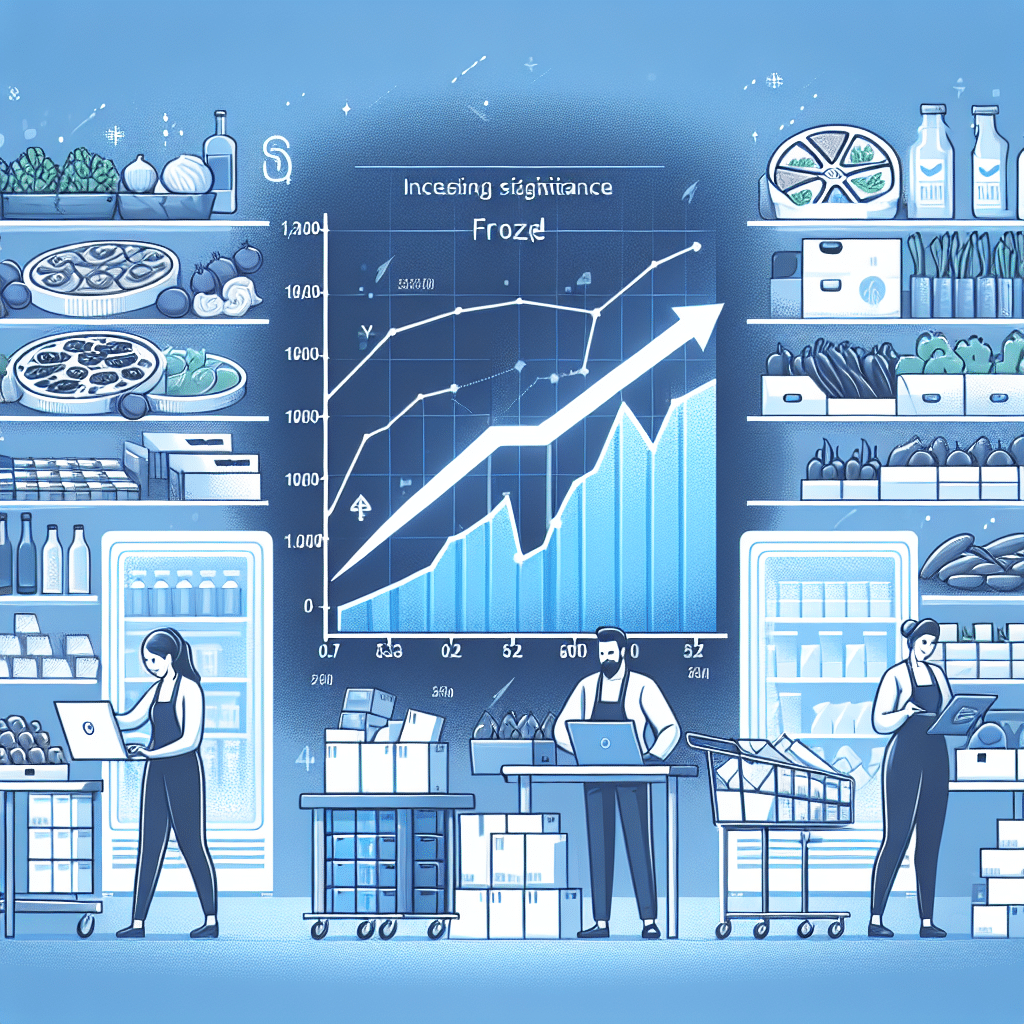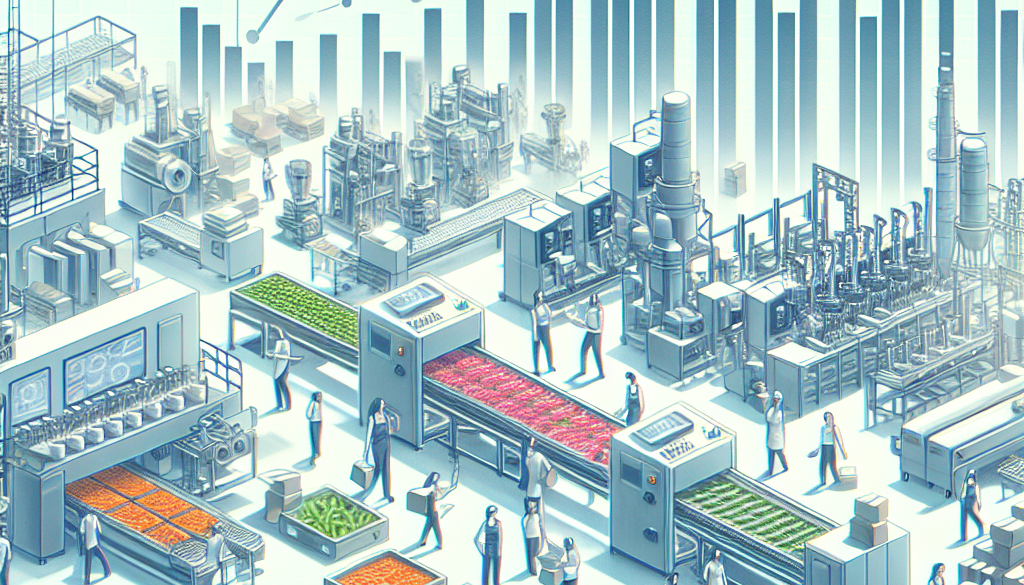Growing Importance of the Frozen Food Industry
-
Table of Contents
- Frozen Food Industry’s Rising Significance: A Deep Dive
- The Convenience Factor
- Nutritional Retention and Food Safety
- Economic and Environmental Impacts
- Technological Advancements in Freezing
- Market Growth and Consumer Trends
- Challenges and Opportunities
- Conclusion
- ETprotein’s Contribution to the Frozen Food Industry
Frozen Food Industry’s Rising Significance: A Deep Dive

The frozen food industry has been witnessing a significant growth spurt in recent years, and this trend shows no signs of slowing down. With the increasing pace of life, the demand for convenience, and the desire for preserving nutritional value in food, the frozen food sector has become a pivotal part of the global food industry. In this article, we will explore the factors contributing to the growing importance of the frozen food industry, supported by statistics and insights that underline its expanding role in our daily lives.
The Convenience Factor
One of the primary drivers of the frozen food industry’s growth is the unparalleled convenience it offers. Busy lifestyles have made meal preparation a luxury few can afford on a daily basis. Frozen foods cater to this need by providing quick and easy meal solutions that require minimal preparation time.
- Ready-to-eat meals: Frozen meals that can be heated and served within minutes are a boon for time-starved consumers.
- Long shelf life: The ability to store frozen foods for extended periods without spoilage reduces food waste and the frequency of grocery shopping trips.
- Portion control: Frozen products often come in pre-portioned sizes, aiding in better dietary management.
Nutritional Retention and Food Safety
Contrary to common misconceptions, frozen foods can retain nutrients at levels comparable to their fresh counterparts. The process of flash-freezing, which involves rapidly freezing foods at extremely low temperatures, locks in vitamins and minerals. This method also inhibits the growth of bacteria, ensuring that frozen foods are not just convenient but also safe and nutritious.
- Preservation of nutrients: Flash-freezing preserves the nutritional content of food, sometimes even better than fresh foods that have been stored for a long time.
- Reduced contamination risks: The freezing process reduces the risk of foodborne illnesses by halting the growth of harmful bacteria.
Economic and Environmental Impacts
The frozen food industry also has significant economic and environmental implications. It allows for the global distribution of seasonal produce and reduces food waste by extending the life of perishable items.
- Global trade: Frozen foods can be transported over long distances, making seasonal fruits and vegetables available year-round.
- Food waste reduction: By freezing surplus produce, the industry helps in reducing the amount of food that ends up in landfills.
Technological Advancements in Freezing
Technological innovations have played a crucial role in the advancement of the frozen food industry. Improvements in freezing technologies have enhanced the quality and variety of frozen foods available to consumers.
- Improved freezing techniques: Innovations like cryogenic freezing have improved the texture and taste of frozen foods.
- Better packaging: Developments in packaging technology help maintain the integrity of frozen foods during transport and storage.
Market Growth and Consumer Trends
The global frozen food market size was valued at USD 291.3 billion in 2019 and is expected to grow at a compound annual growth rate (CAGR) of 5.1% from 2020 to 2027, according to a report by Grand View Research. This growth is influenced by changing consumer trends and preferences.
- Health-conscious consumers: There is a growing demand for frozen foods that cater to health-conscious individuals, such as organic and plant-based options.
- Ethnic and gourmet options: Consumers are increasingly seeking diverse and high-quality frozen food options that offer a gourmet dining experience at home.
Challenges and Opportunities
Despite its growth, the frozen food industry faces challenges such as the perception of inferior quality compared to fresh foods and the need for constant innovation to meet evolving consumer demands. However, these challenges also present opportunities for the industry to improve and expand.
- Quality perception: Ongoing education and marketing efforts are needed to change the perception that frozen foods are less nutritious or inferior in quality.
- Innovation in products: There is an opportunity for companies to innovate with healthier, more diverse, and higher-quality frozen food offerings.
Conclusion
The frozen food industry is becoming increasingly important in today’s fast-paced world. Its growth is driven by the convenience it offers, the ability to retain nutritional value, and the economic and environmental benefits it provides. Technological advancements and changing consumer trends further fuel its expansion. As the industry continues to evolve, it is poised to play an even more significant role in the global food market.
ETprotein’s Contribution to the Frozen Food Industry
ETprotein is at the forefront of providing high-quality protein products that can enhance the nutritional value of frozen foods. Their range of organic and non-GMO protein powders, including rice, pea, and various seed proteins, are ideal for fortifying frozen meals and making them more appealing to health-conscious consumers. With a commitment to quality and customer satisfaction, ETprotein’s offerings are a valuable addition to the frozen food industry’s supply chain.
About ETprotein:
ETprotein, a reputable protein and L-(+)-Ergothioneine (EGT) Chinese factory manufacturer and supplier, is renowned for producing, stocking, exporting, and delivering the highest quality organic bulk vegan proteins and L-(+)-Ergothioneine. They include Organic rice protein, clear rice protein, pea protein, clear pea protein, watermelon seed protein, pumpkin seed protein, sunflower seed protein, mung bean protein, peanut protein, and L-(+)-Ergothioneine EGT Pharmaceutical grade, L-(+)-Ergothioneine EGT food grade, L-(+)-Ergothioneine EGT cosmetic grade, L-(+)-Ergothioneine EGT reference grade and L-(+)-Ergothioneine EGT standard. Their offerings, characterized by a neutral taste, non-GMO, allergen-free attributes, with L-(+)-Ergothioneine purity over 98%, 99%, cater to a diverse range of industries. They serve nutraceutical, pharmaceutical, cosmeceutical, veterinary, as well as food and beverage finished product distributors, traders, and manufacturers across Europe, USA, Canada, Australia, Thailand, Japan, Korea, Brazil, and Chile, among others.
ETprotein specialization includes exporting and delivering tailor-made protein powder and finished nutritional supplements. Their extensive product range covers sectors like Food and Beverage, Sports Nutrition, Weight Management, Dietary Supplements, Health and Wellness Products, and Infant Formula, ensuring comprehensive solutions to meet all your protein needs.
As a trusted company by leading global food and beverage brands and Fortune 500 companies, ETprotein reinforces China’s reputation in the global arena. For more information or to sample their products, please contact them and email sales(at)ETprotein.com today.












